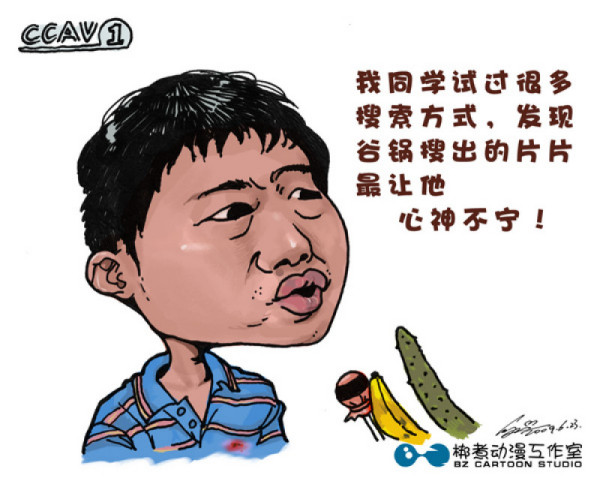
CCAV interview: “My classmate tried several search methods until he discovered that Google’s search results made him feel the most ‘disturbed.’”
心神不宁 (xīnshén bùníng): disturbed
In the summer of 2009, Google was threatening to withdraw from China, while China was stepping up its criticism of the company. On June 18, CCTV aired an interview with a “university student” named Gao Ye who claimed pornographic content in Google’s search results had caused one of his classmates to be “disturbed.”
China’s human flesh search engine kicked into high gear. It was discovered that Gao was not a student at all, but an intern for the very program on which he had been interviewed. This is reminiscent of a 2007 CCTV interview with a schoolgirl who complained about an “erotic and violent” website. Both incidents have called into question CCTV’s journalistic integrity.
Many netizens objected that the government was unfairly targeting Google. They also maintained that Chinese search engines produced a similar volume of pornographic search results.
After the word “disturbed” went viral, “Gao Ye” became a sensitive word: search results containing “Gao Ye” were heavily filtered by domestic search engines.
In current online usage, the term “disturbed” has become a catchphrase, just like “erotic and violent.” For example, a comment beneath the picture of a scantily clad woman might read, “Wow, this really makes me ‘disturbed.’”
Google left mainland China in March 2010 after a Chinese-originated email hack in late 2009.

The Word of the Week comes from China Digital Space’s Grass-Mud Horse Lexicon, a glossary of terms created by Chinese netizens and frequently encountered in online political discussions. These are the words of China’s online “resistance discourse,” used to mock and subvert the official language around censorship and political correctness.









